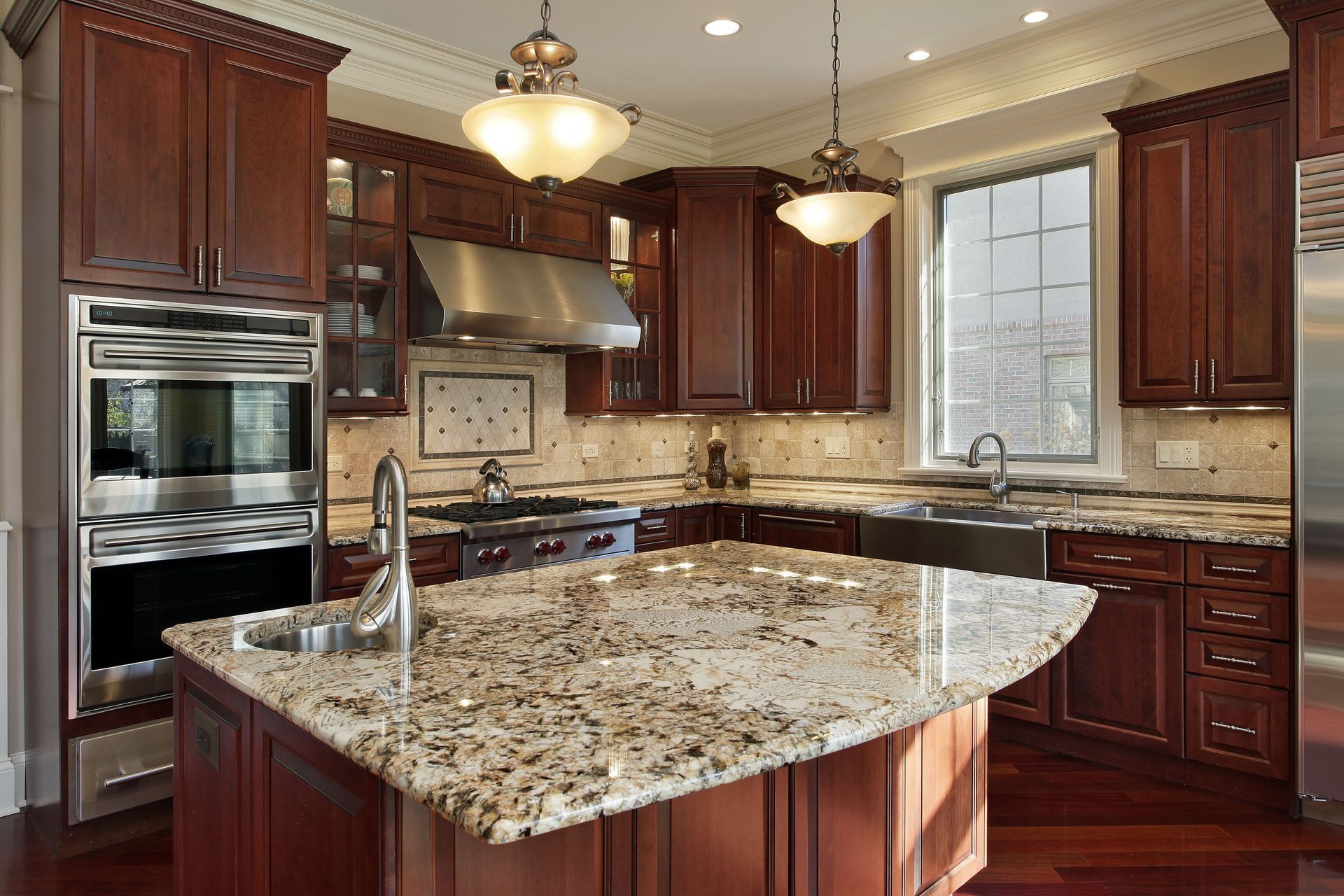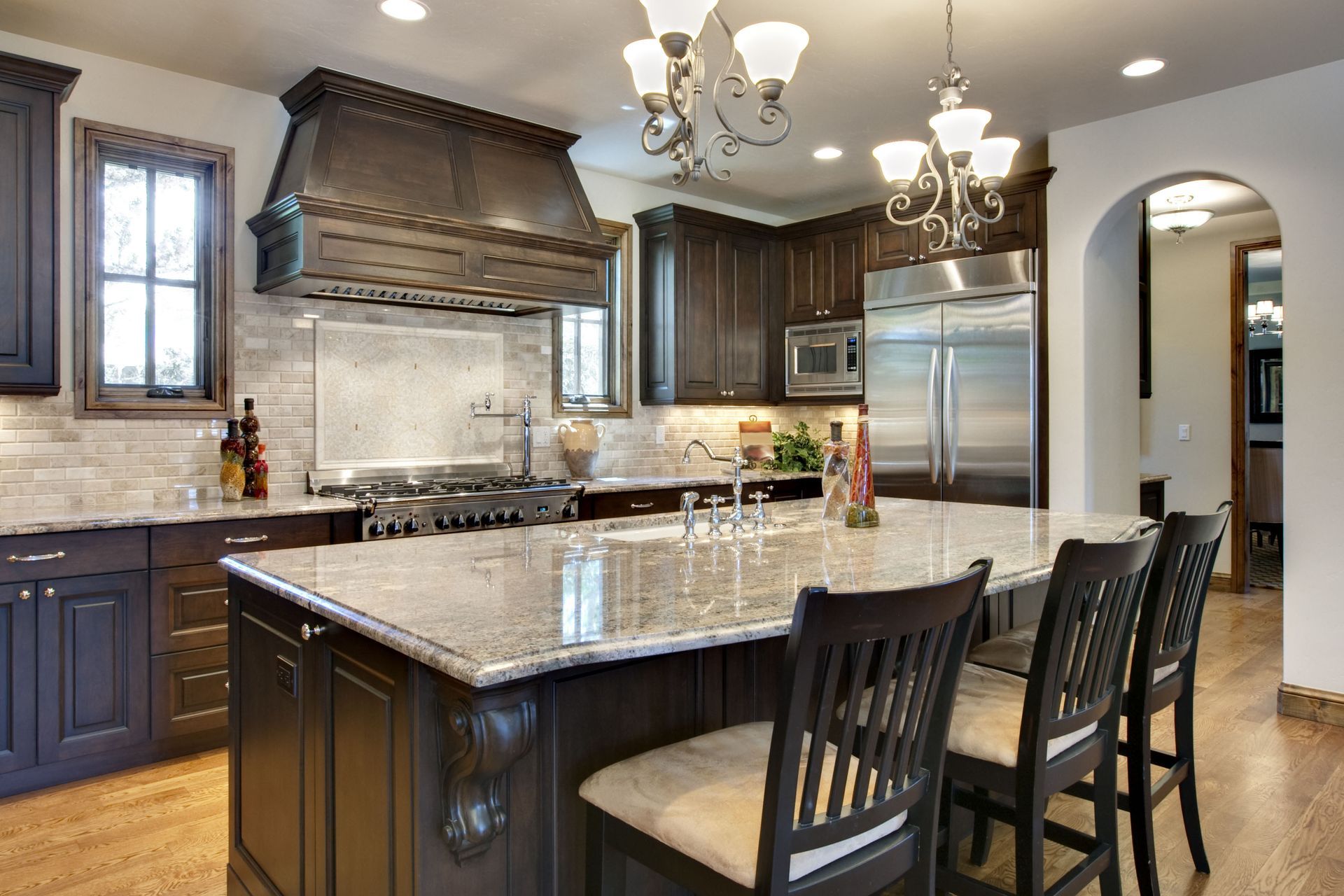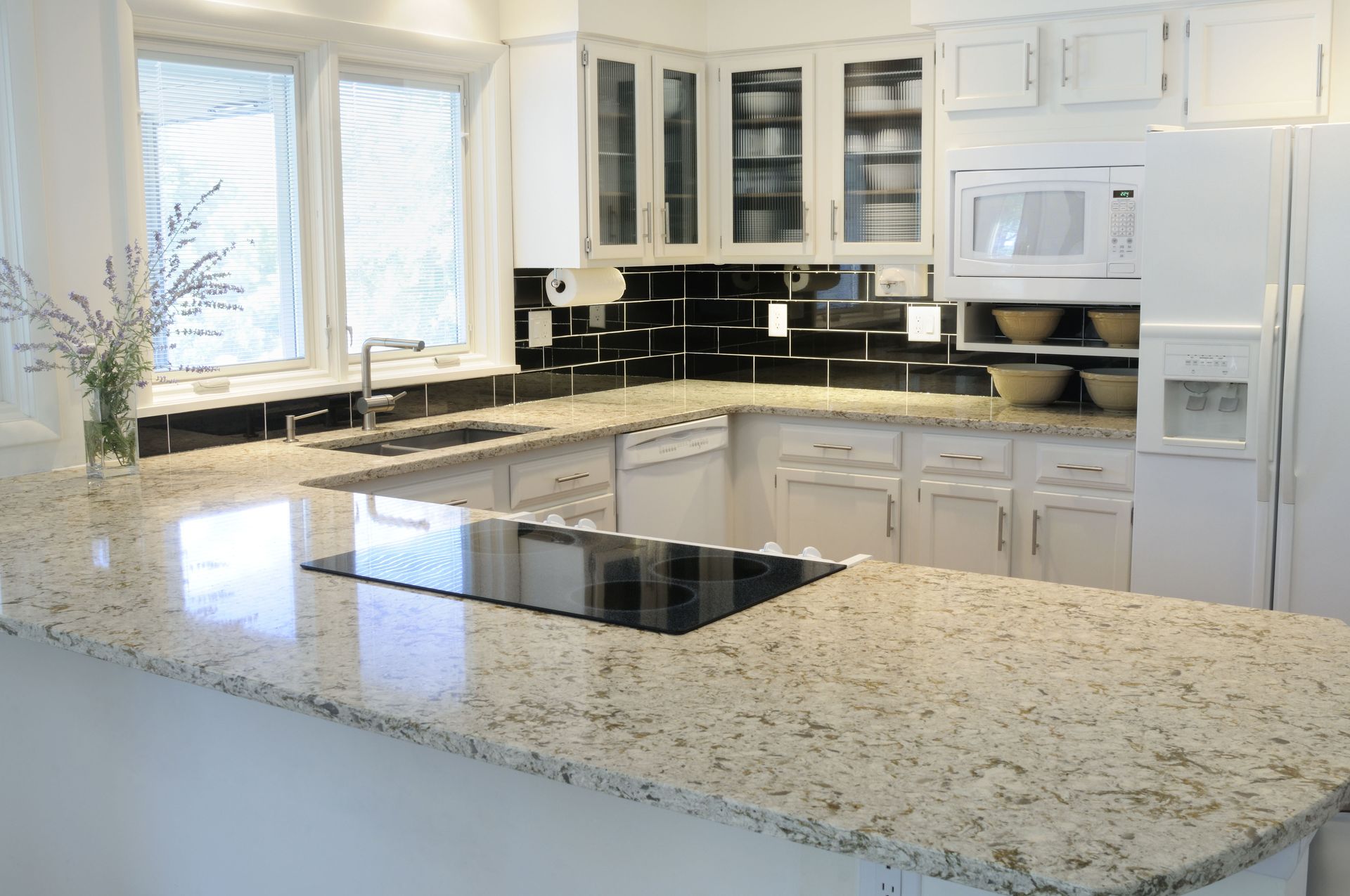How to Maximize the Lifespan of Your Quartz Countertop
Quartz countertop surfaces offer homeowners a rare combination of beauty, durability, and ease of maintenance. But even the sturdiest quartz countertop needs care to stay looking its best for years to come. This post walks you through everything you need to know to protect your investment, avoid common pitfalls, and make your quartz countertop last as long as possible.
Understanding What Gives a Quartz Countertop Its Strength
A quartz countertop is made by combining natural quartz with resins and pigments. Because the material is engineered, quartz countertops are non-porous, which means they don't absorb liquids the way natural stone like marble or granite might. This gives them built-in resistance to stains, bacteria, and moisture. But strength doesn't mean indestructible. Heat, cutting surfaces, and certain chemicals can still cause damage. Recognizing the limits of your quartz countertop is the first step toward extending its life. Additionally, understanding that each brand or style of quartz may have slightly different characteristics can help you choose the right cleaning and maintenance methods for your specific surface.
Cleaning Consistently to Preserve Appearance
Daily care is key to keeping a quartz countertop looking fresh. Use warm water and mild dish soap after preparing food or spills. Wipe gently with a soft cloth or non-abrasive sponge. Avoid cleaners that contain bleach, harsh acids, or strong alkaline agents. These can degrade the resins that hold the quartz together or dull the polished finish. If something spills-wine, coffee, oil-clean it up promptly before it has time to settle. For tougher messes, a soft-bristled brush can help lift residue without scratching the surface. Frequent, gentle cleaning is more effective than occasional deep scrubbing and helps maintain the countertop's natural shine.
Protecting Surfaces to Prevent Damage
Avoid placing hot pots or pans directly on your quartz countertop. While many quartz surfaces are heat resistant, extreme sudden heat can cause thermal shock or discoloration. Use trivets or hot pads under cookware, especially cast iron or stainless steel pans that retain heat for a long time. Likewise, cut directly on your quartz countertop only with a cutting board; sharp knives can scratch the resin or polish. Also, never use your quartz countertop as a workbench for crafts, glue, or other projects that involve harsh adhesives or chemicals without protection. Even seemingly harmless activities like rolling dough or pounding on the surface can lead to micro-fractures over time. Small protective habits prevent cumulative damage.
Removing Stains Properly to Avoid Permanent Marks
Even though quartz countertops are non-porous and generally stain resistant, some spills or spots can leave marks if left too long. If you notice a stubborn stain, apply a cleaner made specifically for engineered stone, or a mild poultice recommended by the manufacturer, and let it sit gently without scrubbing aggressively. According to This Old House, when removing stains from stone countertops, your cleaning solution should sit on the stain for 24 to 48 hours. That extended dwell time gives the cleaner time to loosen the stain without damaging the quartz surface. After that time, rinse with water, dry well, and polish if needed. Some homeowners find that using a soft cloth to gently buff the surface afterward can restore an almost-new shine.
Preventing Damage from Heat, Pressure, and Impact
While quartz countertop materials are strong, they can be vulnerable to extreme conditions. Heavy impact-like dropping a cast-iron skillet-can chip the edges. Sliding heavy objects across the surface without lifting can scratch or damage both the resin and the quartz pieces embedded in it. Always lift, never drag. Avoid sudden large temperature changes, such as moving something piping hot from the stove onto a cold quartz surface, or placing cold items onto a surface just heated. Use under-mount sink padding and ensure that under your quartz countertop the cabinetry provides solid, level support to prevent stress fractures. Regularly checking for uneven pressure points helps maintain the integrity of the surface and prevent warping.
Avoiding Harmful Chemicals, Stain-Causing Substances, and Maintenance Mistakes
Not all cleaning agents are created equal. Chlorine bleach, strong acids, or abrasives can dull or pit the finish of a quartz countertop. Prolonged exposure to direct sunlight in areas without UV protection may cause resin discoloration or fading. Another common mistake is sealing a quartz countertop. Because quartz is engineered and non-porous, sealing is unnecessary and can even harm the surface by leaving residue in seams or joints. Understanding which household products are safe-and which are not-can save homeowners from costly mistakes.
Inspecting Periodically to Catch Problems Early
Every few months, take a few minutes to inspect your countertop's edges, seams, and finish. Check for small chips, cracks, or dull spots where finish has worn thin. If you find small chips early, a repair kit or professional refinishing may fix them before they become bigger problems. Watch for seams where resin or grout between panels may discolor, pull apart, or get water underneath. Proper caulking and sealant in those areas help prevent moisture damage. Small preventive repairs cost far less in time and money than full panel replacement later. Periodic inspection also allows you to identify stress points and adjust usage habits to prolong the surface's longevity.
Preserving Beauty through Smart Habits
Use coasters under glasses, especially those with dyes or alcohol, to avoid stain rings or etching. Always use mats or soft padding under heavy decor like vases, appliances, or decor items. When using citrus, wine, or acidic foods like tomato sauce, avoid letting them sit on your quartz countertop. Wipe up acidic spills quickly to avoid dulling or slight etching. If you cook often, consider using cutting boards with sharp knives instead of working directly on the surface. These small care habits accumulate over time and make a big difference. Even small, seemingly insignificant habits can drastically affect the countertop's appearance over years of use.
Maintaining Overall Care Routine to Ensure Longevity
Consistency matters. Set up routines: daily wipe downs, weekly gentle cleans, monthly deeper inspections. Use only recommended cleaners (pH neutral, non-abrasive) and avoid the quick fix of harsh chemicals. Keep the room's humidity and temperature relatively stable-extreme humidity can promote mold under sinks or around seams; extremes of temperature can stress adhesive joints. If your quartz countertop was manufactured with a warranty, follow the manufacturer's care instructions closely: sometimes they specify certain cleaners or sealants you must avoid to keep the warranty valid. Maintaining a care routine is less about occasional deep cleaning and more about daily prevention, ensuring your countertop retains its shine, durability, and elegance over time.
A quartz countertop is an investment in your home's beauty and usefulness. With proper care-gentle and consistent cleaning, protection from heat and impact, avoiding harsh chemicals, and inspecting for damage-you'll help ensure that your countertop serves well for decades. Your maintenance habits shape the outcome: a simple daily wipe, a bit of care when things happen, and knowing the right way to treat stains and imperfections can mean the difference between a countertop that looks worn after a few years and one that still shines like new. At Granite Kitchen & Bath LLC, we believe a well-cared-for countertop is one of the best reflections of a home that's built to last. The combination of understanding your quartz countertop's limits and maintaining regular care routines ensures both beauty and functionality for many years. Get in touch with us today!





Share On: